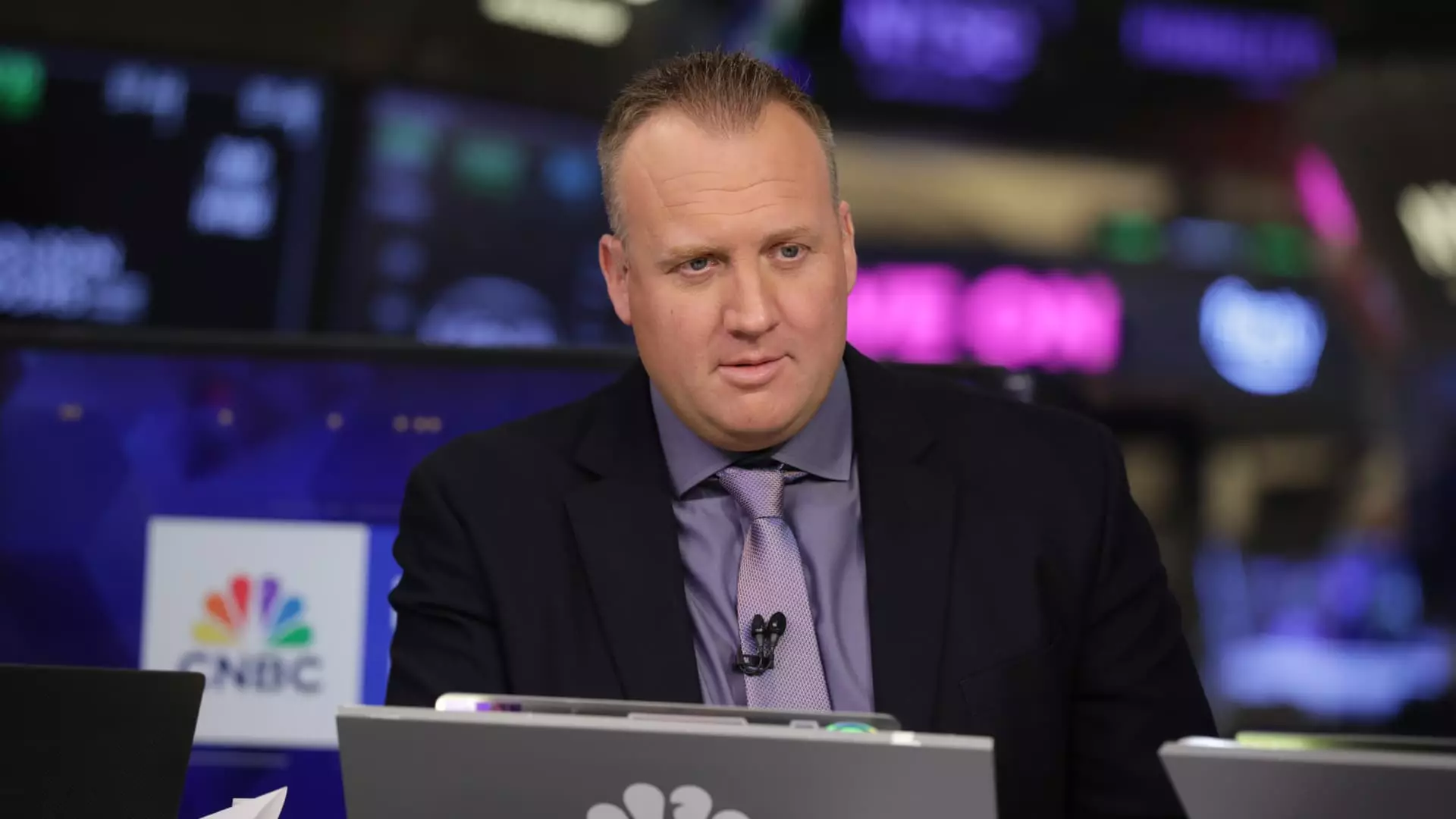In an unexpected twist, Tesla’s CEO, Elon Musk, has found himself in a public spat with none other than former President Donald Trump. This feud erupted online, prompting an immediate reaction from investors. The implications were palpable; shares of Tesla saw a staggering drop of over 14% in a single day. What is particularly striking about this situation is the stark contrast between Musk’s previous relationship with Trump and the current public hostility. Such volatility is typical in high-stakes environments, where loyalty can shift as quickly as market sentiments.
Josh Brown, the CEO of Ritholtz Wealth Management, observed the exchange with an almost bemused detachment. “The drama on Twitter is hilarious,” he remarked during a CNBC segment. This comment underscores a prevailing attitude among Tesla investors: a sort of fatalistic amusement at the spectacle of market dynamics intertwined with celebrity antics. However, therein lies a question as to whether this cavalier approach is beneficial in the long run or if it’s leading investors toward potential pitfalls.
The Resilience of the Tesla Investor Base
While a 14% decline in share prices would send most investors into a frenzy, Brown argues that Tesla’s investor base remains oddly unwavering. Their loyalty has been described as almost cult-like, with many viewing Tesla not merely as a car company but as a futuristic entity poised to dominate with ambitious projects like robotaxis and artificial intelligence. This transition in perception has led to a significant rebranding within the investor community; Tesla is now seen more as a tech heavyweight rather than just an automaker.
Brown noted that Tesla investors are willing to overlook some quite alarming trends, including the company’s dwindling market share in key sectors. The financial backing they offer seems predicated on a belief that electric vehicle sales are merely a stepping stone towards larger innovations. Such blind faith is fascinating but should ignite concern about the sustainability of this investment strategy. Are we witnessing a mere stock price rebound fueled by speculation about futuristic technologies rather than solid financial fundamentals?
The “Nothing-Matters” Stock Phenomenon
Characterizing Tesla as a “nothing-matters stock,” as Brown suggested, paints a vivid picture of how detached investor sentiment can be from market realities. Trading at an eye-watering 120 times its earnings, Tesla exemplifies a stark divergence between its trading metrics and traditional valuation methods. This creates an uncomfortable landscape for more conservative investors who rely on a solid foundation of earnings before making investment decisions.
Yet, with the trading volatility seen recently, some investors may be viewing the recent dip as an advantageous opportunity. The lure of a bargain, combined with the unwavering faith displayed by Tesla’s shareholder cohort, reflects a different investment philosophy—one that emphasizes future potential over current realities.
Shifting Perspectives: From Automaker to Tech Giant
The critical shift in how investors perceive Tesla signals broader changes within the automotive industry, where the lines have blurred between traditional auto manufacturing and technological innovation. The belief that car sales are ancillary to the robotaxi revolution indicates a fundamental belief in the transformative capabilities of technology. While this optimism is admirable, it is also dangerously naiveté if divorced from tangible performance metrics.
The potential for Tesla to expand into automation and AI is tantalizing; however, it risks leading to a scenario where investors forget the core competency that initially attracted them—electric vehicles. Without sound business strategies and realistic projections, the idealism projected by Tesla’s faithful base runs the risk of being just that—overly idealistic.
Future Outlook: Investor Sentiment and Market Stability
As Tesla’s stock continues to flourish amidst dramatic ups and downs, one can’t help but feel a sense of unease regarding the stability of its investor base. What happens when loyalty clashes with reality? When faith starts to buckle, will the downturn manifest as rapidly as the recent spike? While Josh Brown expresses confidence in the resilience of Tesla’s investors, it’s crucial to approach such enthusiasm with caution.
In market dynamics driven by social media and charismatic leadership, investors must remain vigilant. The allure of futuristic technology may blind investors to fundamental weaknesses. If faith alone drives investment, this could herald a precarious future for those riding the Tesla wave.

